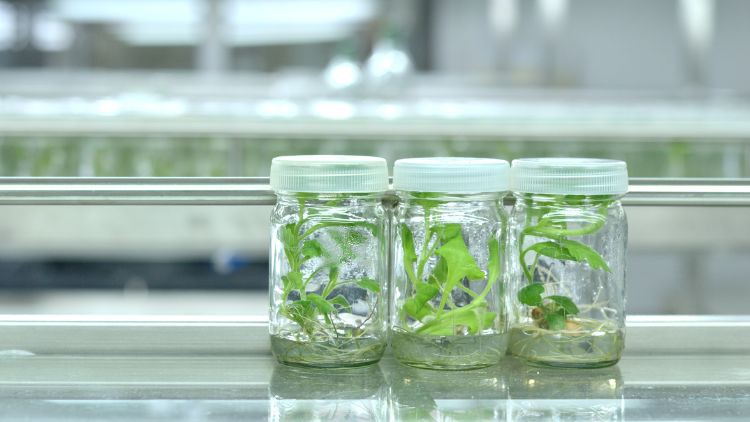
Cultivating Botanical Advancements
What you will learn
Stay ahead in the field of botanical research with insights into the latest advancements in plant cell and tissue culture.
Understand how plant cell and tissue culture techniques applied in agriculture, pharmaceuticals, biotechnology, and conservation efforts.
Understand how plant cell and tissue culture techniques are applied in agriculture, pharmaceuticals, biotechnology, and conservation efforts.
Access course materials anytime, anywhere, and at your own pace, fitting seamlessly into your busy schedule.
Add-On Information:
Note➛ Make sure your 𝐔𝐝𝐞𝐦𝐲 cart has only this course you're going to enroll it now, Remove all other courses from the 𝐔𝐝𝐞𝐦𝐲 cart before Enrolling!
- Master Aseptic Techniques & Media Formulation: Gain essential proficiency in sterile lab practices crucial for preventing contamination. Learn to precisely formulate nutrient media, understanding the critical balance of growth regulators to control plant cell proliferation and organogenesis, the foundation of in vitro plant cultivation.
- Execute Advanced Micropropagation Protocols: Acquire expertise in rapid clonal plant multiplication from small explants. Explore techniques like shoot tip and nodal culture, optimizing conditions to produce genetically identical, disease-free plantlets for commercial horticulture, forestry, and agriculture.
- Utilize Callus & Cell Suspension Systems: Understand how to induce and maintain undifferentiated cell masses (callus) and liquid cell cultures. Learn their application in generating somaclonal variants for crop improvement and for in vitro production of valuable plant secondary metabolites.
- Implement Haploid Breeding Techniques: Discover and apply anther/pollen culture to generate haploid and dihaploid plants. This accelerates breeding programs by achieving homozygosity in a single generation, vital for faster genetic studies and new crop variety development.
- Grasp Plant Genetic Transformation Principles: Gain foundational knowledge of introducing new genetic material into plant cells. Explore key methods (e.g., Agrobacterium-mediated transfer), understanding selection and regeneration strategies for engineering plants with enhanced traits.
- Develop Troubleshooting & Optimization Expertise: Cultivate an analytical mindset to diagnose and resolve common challenges (contamination, browning, poor regeneration). Learn to systematically modify and optimize protocols for diverse plant species and research goals.
- PROS:
- Acquire In-Demand Lab Skills: Gain practical, transferable skills vital for plant science, biotech, and agriculture.
- Drive Botanical Innovation: Contribute to cutting-edge research and sustainable plant cultivation.
- Expand Career Opportunities: Unlock diverse roles in research, breeding, conservation, and biotechnology.
- CONS:
- Demands Meticulous Attention: Success requires rigorous aseptic technique and persistence.
English
language